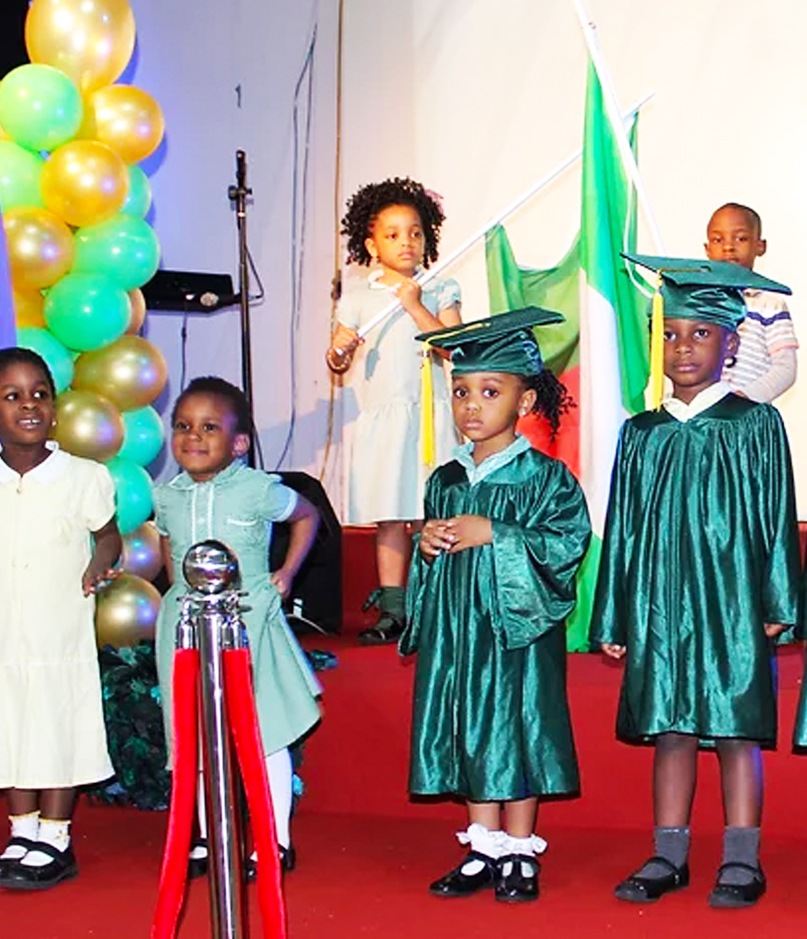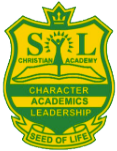Nursery

Our Nursery Department
EYFS Intent, Implementation, and Impact Statement
The Statutory Framework for the Early Years Foundation Stage sets the standards for learning, development, and care for children from birth to 5 years.
Intent
Fundamental British Values are at the heart of our curriculum and everything we do; we focus on promoting the more general concepts within the Early Years Foundation Stage (EYFS) and understand that the children’s development within these areas is key to promoting the values in the long term. We try to give the children the Cultural Capital they need for future success i.e., giving each child the best start in life and the support that enables them to fulfill their full potential and achieve future success. We are passionate about creating opportunities for children to communicate more easily through developing language and communication skills and specifically teaching vocabulary We wish our children to believe in themselves and their abilities and capabilities, to belong to the school learning community and the wider community, and to become successful in their academic career and beyond.
We intend that children experience the seven learning areas through a balance of whole class/group teaching and play-based learning. This is through the children’s interests, topics, themes, continuous provision activities, and phonics. Learning is carefully planned by the staff to support communication and language development; personal, social, and emotional development; and physical development as well as literacy, mathematics, understanding of the world, and expressive arts and design.
Within the EYFS and as a school, we aim to help our pupils achieve the five Every Child Matters (ECM) outcomes of staying safe, being healthy, enjoying and achieving, making positive contributions, and achieving economic well-being.
EYFS aims to Provide a safe and happy atmosphere where children are valued as individuals;
Offer a program of experimental learning based on the new EYFS;
Offer a program of learning that provides continuity with what went on before and progression with what will follow and treat the children as individuals recognizing that the children will be at various stages in their development.
Our curriculum has been designed to enable children to succeed through cooperative and collaborative learning principles. As such, there is a strong emphasis on the Prime Areas of learning; Personal, Social and Emotional Development and Communication and Language, including oracy.
At Sol Academy, we recognize that oracy not only improves academic outcomes but is a life skill to ensure. Success goes beyond school, in life, and future employment. Oracy develops children’s thinking and understanding, which in turn promotes self-confidence, resilience, and empathy which supports a child’s well-being.
We believe that high-level engagement ensures high-level attainment. We therefore provide an engaging curriculum that maximizes opportunities for meaningful cross-curricular links and learning experiences, as well as promoting the unique child by offering extended periods of play and sustained thinking. We follow children’s interests and ideas to foster lifelong learning.
Implementation
Each half term, EYFS staff introduce a new theme to provide inspiration for learning, whilst providing the flexibility for children to follow their own interests and ideas. Children learn through a balance of child-initiated and adult-directed activities. Children are provided with plenty of time to engage in exploration throughout a variety of experiences. The curriculum is planned for the inside and outside classrooms and equal importance is given to learning in both areas.
Literacy
Each half term, EYFS staff introduce a new theme to provide inspiration for learning, whilst providing the flexibility for children to follow their own interests and ideas. Children learn through a balance of child-initiated and adult-directed activities. Children are provided with plenty of time to engage in exploration throughout a variety of experiences. The curriculum is planned for the inside and outside classrooms and equal importance is given to learning in both areas.
Phonics
We follow the “TWINKL” Phonics program in conjunction with the DfES Letters and Sounds program.
Nursery children focus on Phase 1 which concentrates on developing children’s speaking and listening skills and lays the foundations for the phonic work which starts in Phase 2. The emphasis during Phase 1 is to get children attuned to the sounds around them and to make them ready to begin developing oral blending and segmenting skills.
In Reception, Phase1 continues but children are introduced to Phases 2 and 3 where they will develop graphic phoneme correspondence and segmenting and blending skills to decode words.
During the Reception Summer term, children may move on to Phase 4 if they are ready. Children are encouraged to read at home and are listened to regularly in school. We also use phonics sessions to develop children’s expertise in handwriting. We teach precursive and then cursive handwriting as appropriate over the year.
Mathematics
In Early Years, we followed the White Rose Math Scheme of work, divided into 3 weekly units. High-quality learning environments and meaningful interactions with adults’ support children in developing mathematical thinking and discussion. Pupils learn through games and tasks using concrete manipulatives and pictorial structures and representations which are then rehearsed, applied, and recorded within their child-led exploration. In Nursery, children develop a love of math through games, songs, rhymes, and play using concrete manipulatives. There is a focus on the following counting principles; to one correspondence, stable order and cardinal principle. Children’s fine manipulative skills used to develop 1-1 correspondence, so children count each object only once.
Wider Curriculum
Our wider curriculum is taught through the learning areas; ‘Understanding the World’ and Expressive Arts and Design.’ EYFS staff have a good understanding of how ELGs feed into the National Curriculum through our robust planning and continual professional development opportunities.
Exciting, purposeful, and contextual activities are planned to build on children’s natural curiosity. For example, building a boat during our topic on floating and sinking enables them to think like ‘Scientists’ and ‘Engineers’ as they explore a range of materials and test out their ideas. Building further on our oracy focus, children will be encouraged to employ subject specific language and terminology in foundation subjects. Such vocabulary will be modelled, both verbally and orally, by supporting practitioners.
A range of educational visits (including ones to our local community) bring learning to life. Visitors are also invited into school to enhance subject knowledge and provide learners with real-life experiences. We provide effective and focused intervention for those children who are finding learning challenging and are not on track to meet expectations at the end of the year. This will be provided in an inclusive way and support from parents is also enlisted at an early stage to ensure that the children have every chance to achieve the ELGs.
Impact
Baseline Assessments
During the first half term in the Nursery or Reception, all staff use ongoing assessments, observations, and conversations with children to develop baseline assessments. This identifies each child’s starting points in all areas so we can plan to ensure progress.
The following baseline assessments are also carried out. These assessments are ‘Language, Communication and Literacy,’ and ‘Mathematics.’ This shows the progress children make from Nursery until the end of KS2.
Assessment
Phonic assessments are carried out using a phonics tracker spreadsheet every half term to identify quickly children who are not making expected progress. Intervention groups are implemented where necessary. We measure progress and children’s learning across the year through formative and summative assessments which are based on the teacher’s knowledge of the children, their learning journeys, and photographs. By the end of the year, we provide opportunities for children to increase their independence in recording their work as appropriate to ensure they are well prepared for the move to the next stage of development.
Life in the Early Years
In our classroom, there are different areas of provision that the children can access independently, with their peers, or with the practitioners within the setting. The adults in class play skills, develop language, and move the children’s learning to use the next steps. Children also complete ‘focused activities’ with an adult – this can be 1:1 or in small groups.
Areas of provision include sand, water, creative, small world, construction, ICT, role play, messy, writing, math, and fine motor. We also have an enclosed outdoor area which the children access throughout the day during continuous provision.
Things to remember:
PE: Monday and Friday. Children come to school with their PE uniform
Dance: Wednesdays. Children come to school with their PE uniform
Children will receive 2-3 phonics books each week which they will also be covering during their daily phonics sessions. We encourage children to re-read these books throughout the week to support their phonics and sounds. The children must read at least three times a week as part of their homework. The children also have opportunities to visit the school library throughout the weeks. The children should always have their library books in school.
Homework Grids are sent daily. It consists of a range of topics covered in class, reading and spelling, mathematics, and handwriting.
Snacks and dinners
We believe that a healthy packed lunch can contribute to the health of young children and needs to be consistent with the nutritional standards set out in the School Food Trust Standards for Packed Lunches. Packed lunches represent a third of a child’s daily intake of foods and nutrients, which presents a wonderful opportunity to promote healthy food choices for children.
Content of Packed Lunches
Foods to include:
We ask that all packed lunches be based on the School Food Trust Standards for Packed Lunches and should include the following:
- Fruit and Vegetables; at least one part of fruit and one portion of vegetables.
- Protein; meat, fish, egg, or other source of non-dairy protein (e.g., lentils, kidney beans, chickpeas, hummus, or dhal).
- Oily Fish; such as tinned or fresh mackerel, sardines, salmon, and tuna
- Carbohydrate; starchy food such as bread, pasta, rice, couscous, noodles, potatoes, chapattis.
- Dairy; food such as milk, cheese, yoghurt, fromage frais, or calcium fortified Soya products, reduced fat versions of these should be used where possible.
- Drinks; water, pure fruit juice (no added sugar), reduced fat and sugar yoghurt, milk drinks or smoothies. NO FIZZY DRINKS.
- Puddings should be fruit-based such as fruit salad, tinned fruit with yogurt or custard, fruity rice pudding, fruit smoothies, and fruit-based crumble.
Foods to avoid or limit:
- Crisps, cakes, and plain biscuits.
- Meat products such as sausage rolls, individual pies, corned meat, and sausages.
Note: The limited items should be included in packed lunches no more than once per week.
Packed lunches should not include any of the following:
- Fizzy/sugary drinks in cartons, bottles, or cans (including diet or energy drinks which can have prominent levels of caffeine and other additives that are not suitable for children).
- Confectionary such as chocolate bars and sweets.
- Chocolate spread as sandwich filling.
- Peanuts and peanut products.
Special diets and allergies
We ask that parents/carers be aware of nut allergies. The school recognizes that some pupils may need special diets that do not follow the National Food Standards exactly. In this case, parents/carers are asked to make sure that packed lunches are as healthy as possible. For these reasons, pupils are also not allowed to swap food items. As some children in school have nut allergies, we ask parents to refrain from including peanuts or peanut butter in lunches.

FEES AND FUNDING
Some 2-year-olds are eligible for 15-hour funding. Find out whether you’re eligible here. https://www.gov.uk/help-with-childcare-costs/free-childcare-2-year-olds
Some 3-year-olds are eligible for 30-hour funding, based on whether their parents or carers both works, earn more than £569 per month, and less than £100,000 per year. Find out whether you’re eligible here. https://www.gov.uk/check-eligible-free-childcare-if-youre-working
Funding can be a bit complicated, so we are always happy to help you figure out what you’re eligible for, and how to apply, and contact the school.
TAX-FREE CHILDCARE & CHILDCARE VOUCHERS
We accept childcare vouchers from all the major providers. Childcare vouchers are being phased out, so unless you already use them, you will instead be eligible for tax-free childcare (see below).
https://www.gov.uk/tax-free-childcare
Please get in touch if you have any questions about using Childcare Vouchers or Tax-Free Childcare. We do not offer breakfast or after-school clubs. However, if you need these services, contact the school.
Accreditations
![]()
 .
. 


Contacts
☎ 0161-637-2944
✉ admin@solacademy.org.uk
⌂ 115 Fairfield Street, Manchester, M12 6EL
©2020 SOL Christian Academy | All rights reserved | Made with love by Doosy
